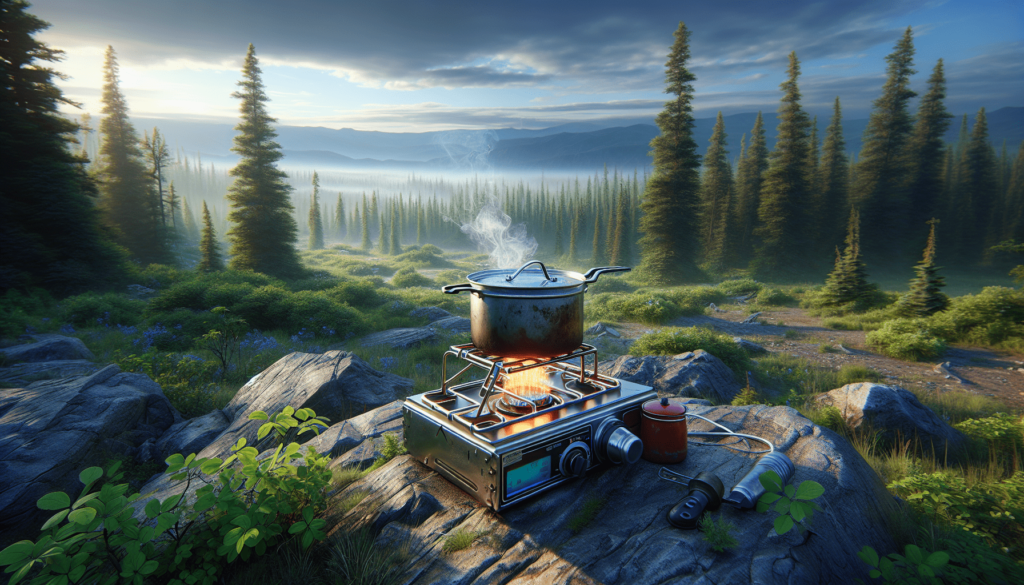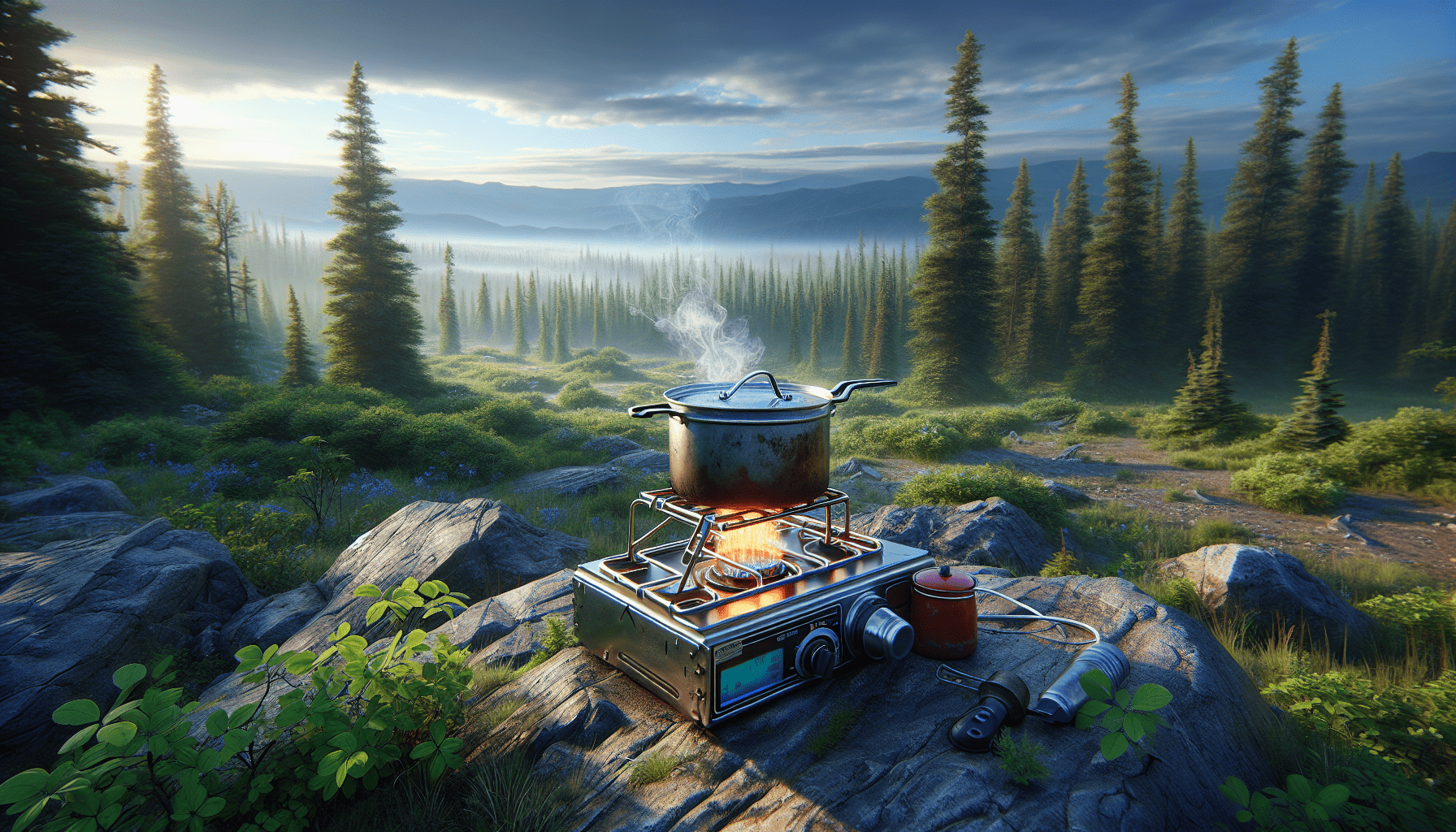Have you ever found yourself in a situation where the power goes out, and you’re unsure how you’re going to cook your next meal? It’s a common dilemma, especially if a storm hits, the grid fails, or you’re simply dealing with some unexpected technical issues. Knowing your options and having a plan can ease the stress and keep you nourished while waiting for the lights to come back on. Let’s explore the best alternative cooking methods to ensure you’re prepared for any temporary inconveniences.

Understanding the Importance of Alternative Cooking Methods
Electricity plays a huge role in our daily meals, whether you rely on an electric stove, microwave, or even a toaster. When the power cuts out, it’s easy to feel stuck, but alternative cooking methods can save the day. Understanding these methods not only helps during power outages but can also be useful for camping trips, outdoor adventures, and emergency scenarios.
Assessing Your Needs
Before diving into the methods, it’s essential to assess your specific needs:
- How many people will you be cooking for?
- How frequently do you need to prepare meals?
- Do you have any specific dietary requirements?
Answering these questions can help determine which alternative cooking method will work best for you.
Alternative Cooking Methods during a Power Outage
1. Propane Stoves
Propane stoves are a go-to solution for many during power outages. They’re portable, easy to use, and can provide a reliable source of heat for cooking.
Benefits of Propane Stoves:
- Portability: Easy to transport and set up anywhere.
- Usability: Simple to operate with easy ignition systems.
- Efficiency: Provides consistent and controllable heat.
Potential Downsides:
- Fuel Storage: You need to store propane cylinders safely.
- Ventilation: Requires proper ventilation to avoid inhaling harmful fumes.
Tip: Always have a backup supply of propane cylinders on hand.
2. Gas Grills
If you have an outdoor grill, you’re in luck. Gas grills can quickly become your cooking best friend when the power is out.
Benefits of Gas Grills:
- Availability: Often already available in many homes.
- Variety: Can cook a wide range of foods, from meats to vegetables.
- High Heat: Great for tasks that require high temperatures.
Potential Downsides:
- Weather Dependent: Outdoor usage may be challenging in bad weather.
- Fuel Management: Requires careful management of propane or natural gas supply.
Safety Note: Always grill in a well-ventilated area to prevent carbon monoxide buildup.
3. Charcoal Grills
If you don’t have a gas grill, a charcoal grill can be an alternative. It provides a unique flavor to your food and is relatively easy to set up.
Benefits of Charcoal Grills:
- Flavor: Adds a distinct smokey flavor to food.
- Portability: Can be used in various outdoor locations.
Potential Downsides:
- Time-Consuming: Takes longer to heat up compared to gas grills.
- Maintenance: Requires cleaning and proper disposal of ashes.
Tip: Ensure you have enough charcoal briquettes stocked for emergencies.
4. Solar Ovens
Harnessing the power of the sun, solar ovens are an eco-friendly and renewable source for cooking during a power outage.
Benefits of Solar Ovens:
- Eco-Friendly: Uses solar energy, reducing carbon footprint.
- No Fuel Required: Completely eliminates the need for gas, charcoal, or propane.
Potential Downsides:
- Weather Dependent: Requires sunny conditions to work effectively.
- Slower Cooking: Generally takes longer to cook food compared to traditional methods.
5. Portable Butane Stoves
Butane stoves function similarly to propane stoves and offer another portable cooking option.
Benefits of Portable Butane Stoves:
- Compact Design: Extremely portable and easy to store.
- Ease of Use: Simple ignition and flame control.
Potential Downsides:
- Fuel Availability: Butane cans may not be as readily available everywhere.
- Cold Weather Issues: Butane canisters can be less efficient in cold temperatures.
Safety Tip: Ensure proper ventilation to prevent the buildup of harmful fumes.
6. Rocket Stoves
Rocket stoves are highly efficient and designed to use minimal fuel. They can burn small pieces of wood or biomass to produce a strong heat for cooking.
Benefits of Rocket Stoves:
- Efficiency: Very little fuel needed.
- Simplicity: Easy to build and use.
Potential Downsides:
- Fuel Source: Requires a steady supply of small, dry wood.
- Outdoor Use: Primarily designed for outdoor use.
Tip: Consider learning how to make your own rocket stove using common materials.
7. Build a Campfire
A time-honored tradition, building a campfire can be a valuable skill during a power outage. Not only does it provide a way to cook meals, but it also offers warmth.
Benefits of Building a Campfire:
- Resource Availability: Often all you need is wood, which might be available locally.
- Multi-Purpose: Can be used for cooking and heating.
Potential Downsides:
- Skill Required: Must know how to safely start and maintain a fire.
- Weather Conditions: Difficult to set up in windy, wet, or extreme weather.
Safety Precaution: Always ensure the fire is fully extinguished before leaving it unattended.
8. Dutch Ovens
Dutch ovens can be used directly over a campfire, making them a versatile tool for outdoor cooking. They are particularly useful for slow-cooking recipes.
Benefits of Dutch Ovens:
- Versatility: Suitable for baking, roasting, and simmering.
- Durability: Made from robust materials like cast iron.
Potential Downsides:
- Weight: They can be quite heavy, making them less portable.
- Skill Level: May require some practice to master various cooking techniques.
Tip: Practice using your Dutch oven before any emergency to become familiar with its functions and capabilities.
9. Chemical Heaters
Chemical heaters, often found in MREs (Meals Ready-to-Eat) used by the military, use a chemical reaction to generate heat and cook food.
Benefits of Chemical Heaters:
- Portability: Lightweight and compact.
- No Flame: No open flame required for heating.
Potential Downsides:
- Limited Use: Generally for single-use.
- Availability: They can be harder to find in regular stores.
Safety Note: Follow instructions carefully to avoid burns or other injuries.
Tips and Tricks for Successful Alternative Cooking
Stock Up on Non-Perishable Foods
Having a supply of non-perishable foods can be a lifesaver during power outages. Focus on items that are easy to prepare and have a long shelf life.
Practice Makes Perfect
Don’t wait for an emergency to try out your alternative cooking methods. Practice using your propane stove, solar oven, or campfire cooking before you need them.
Keep Safety First
Always prioritize safety. Be aware of ventilation, avoid enclosed spaces for using fuel-based methods, and keep a fire extinguisher nearby just in case.
Create a Cooking Plan
Draft a simple plan outlining what cooking methods you will use for different types of meals. Having a plan will reduce stress when the lights go out.
Conclusion
Power outages don’t have to spell culinary disaster. With an array of alternative cooking methods at your disposal, you’re well-equipped to handle any interruption with ease. Whether you’re grilling outside, harnessing solar power, or thriving with a simple campfire, these methods offer viable solutions to keep you and your family well-fed. So, what’s your go-to plan for the next power outage? Preparing now can go a long way in ensuring you’re ready for whatever comes next.
